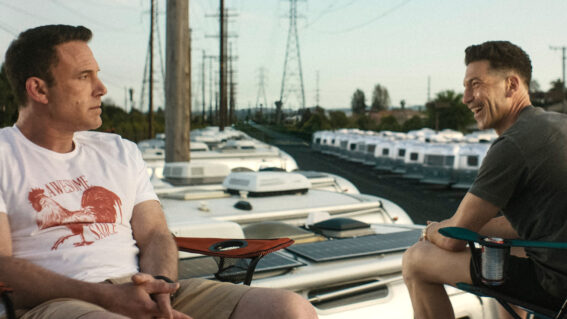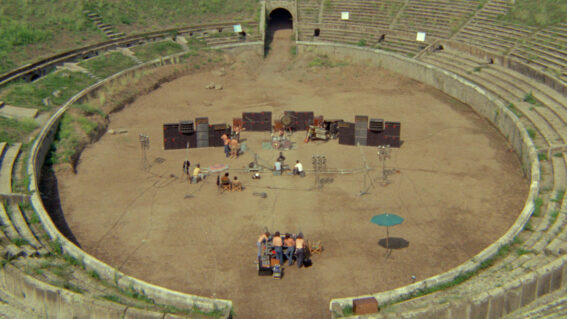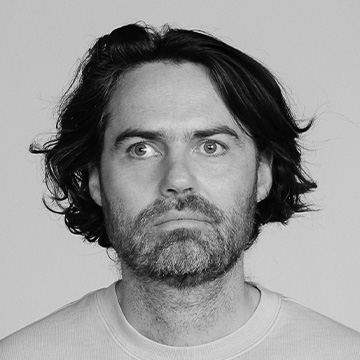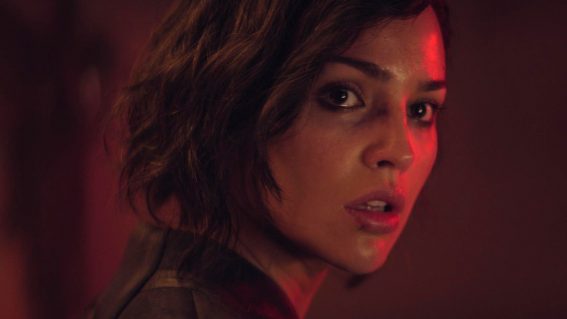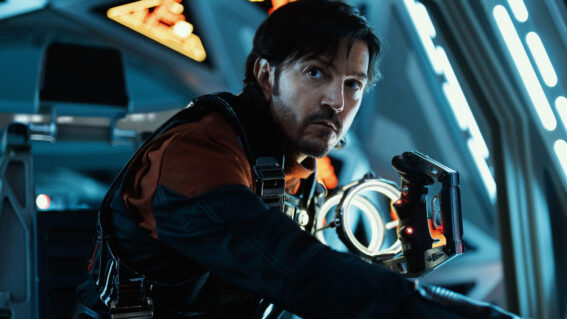11 standout films to catch at NZIFF this year
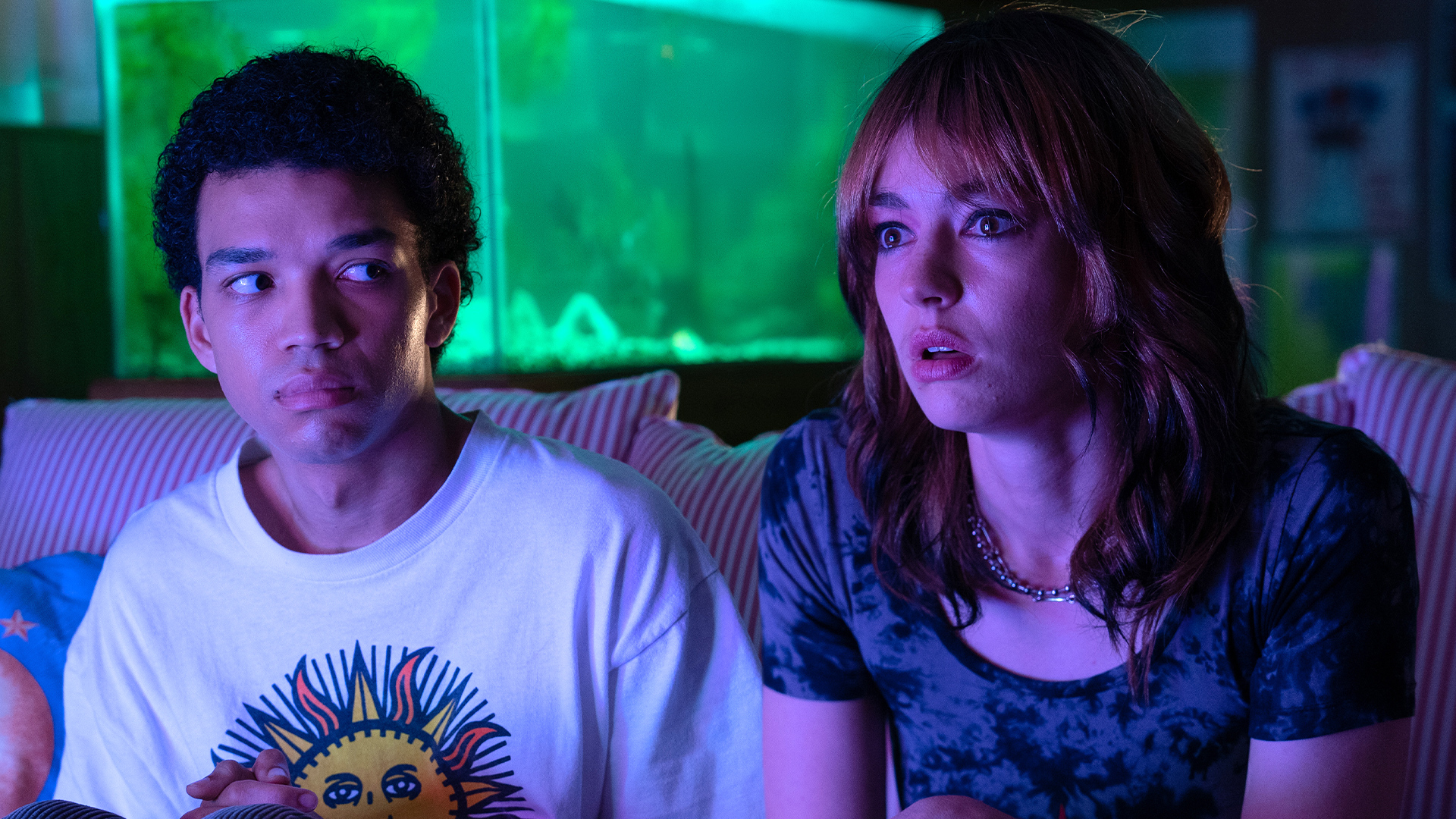
Kicking off at the end of this month, Whānau Mārama New Zealand International Film Festival (NZIFF) has announced its full programme. Steve Newall has selected eleven pics that he’s looking forward to.
With the NZIFF programme out, so begins the familiar exercise of making a long list of stuff to see, trying to get it realistically shorter, and then working the dates and timings to come up with a cinematic schedule that’ll deliver.
Not all the films here may have the same nationwide reach, and I’ve omitted classics like Heavenly Creatures and Peeping Tom that make a welcome return to the big screen in this year’s lineup. But in these 11 picks, you’ll find an intriguing overlap of documentary, drama and genre efforts—films from around the world that make the festival experience what it is.
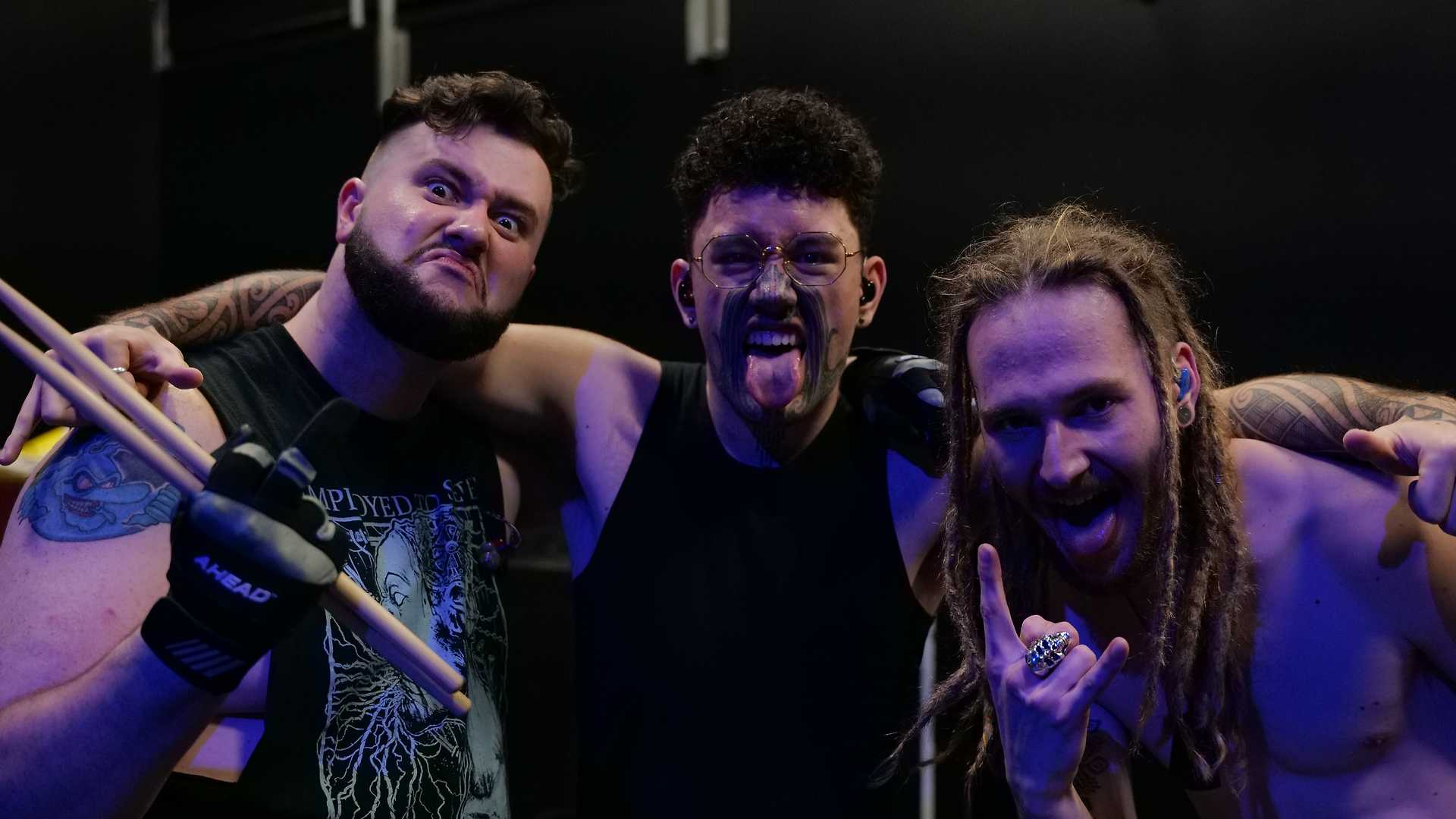
Alien Weaponry: Kua Tupu Te Ara
Aotearoa band Alien Weaponry have taken their face-melting thrash metal—sung in te reo Māori—to audiences worldwide. Touring internationally to acclaim for the past decade, the band are signed to Austria’s Napalm Records, where their labelmates include the likes of Andrew W.K., Brant Bjork, Dragonforce and Monster Magnet. Kent Belcher’s documentary captures the last six years of the band’s life, from when core members Henry De Jong and brother Lewis were still just teens, while archival footage from the De Jongs’ parents winds the clock back further—to Smokefree Rockquest gigs and Alien Weaponry’s origins. There’s a lot to be fascinated by here, when you’re not just rocking the fuck out.
Evil Does Not Exist
Drive My Car director Ryûsuke Hamaguchi returns with this drama, one that’s already taken Best Film at BFI London and the Grand Jury Prize at Venice. Set in a rural village just out of Tokyo, and with a cast of non-professional actors, Evil Does Not Exist follows a community living in relaxed harmony with nature, whose way of life and relationship with the environment are threatened by a real estate development: A glamping retreat, of all horrors. As the project is fast-tracked (hmm) by developers, a single father finds himself caught up in this intrusion, as gentle symbiosis threatens to give way to “progress”.
Green Border
Special Jury Prize winner at Venice, Agnieszka Holland’s drama about the Belarus–European Union border crisis captures the plight of refugees in black and white (literally, in its cinematography). Pawns in a game of hybrid warfare between Alexander Lukashenko and the EU, these desperate asylum seekers are dumped by thuggish Belarusian authorities in freezing, forested border territory, where they’re apprehended by Polish border guards and returned to Belarus—stuck in a treacherous and violent loop. Proving controversial in its director’s native Poland, Green Border is gonna be a tough watch, but its stories of a family seeking asylum, a conscience-troubled border guard, and aid workers feel urgent and unmissable.
I Saw the TV Glow
A visually stunning film about loners connecting over their shared love for a cult TV show gives way to something much deeper and emotionally resonant in Jane Schoenbrun’s follow-up to We’re All Going to the World’s Fair. It’s an acting swerve for Justice Smith (Dungeons & Dragons: Honour Among Thieves) and Brigette Lundy-Paine (Bill & Ted Face the Music) as Owen and Maddy, brought together by late night airings of The Pink Opaque, a closeness that leaves Owen adrift when his friend disappears. This A24 smash is set to be a highlight of NZIFF (and 2024 overall) with the heart to match its auteurist Lynch-y leanings, an Alex G score and soundtrack including the likes of Caroline Polachek, Phoebe Bridgers and Snail Mail.
Kneecap
You might think you know Irish music, and you might think you know hip-hop—so what about hard-partying Irish trio Kneecap? The Gaelic rappers get a biopic of uncertain factual accuracy, playing themselves alongside pros like Michael Fassbender, their pro-Irish language musical stance reflected in this film itself being told in Irish (earning Kneecap the distinction of becoming the first Irish-language film to play Sundance). Laced with drugs, anti-establishment sentiment, cultural pride and fuck-you attitude, just make sure you’re in a fit state to read the film’s subtitles. Mind you, there’s probably going to be enough ket, pills and booze on screen for all of us.
Menus-Plaisirs – Les Troisgros
Got a spare four hours for a doco? “Not usually”, you might say—”but this is NZIFF!” 93-year-old director Frederick Wiseman and his portrait of three times Michelin-starred restaurant Le Bois san Feuilles are the embodiments of good things taking time… Luxuriating in the rhythms of restaurant life and the ecosystem that supports it, we’re left to connect the dots ourselves and draw our own conclusions, as the doco promises to explain nothing—just observe, in a unique opportunity to embed into its world of hats and stars.
No Other Land
Israel’s land grabs in the West Bank and of other Palestinian territories have been deserving of serious attention for decades. This documentary, on a Palestinian village subjected to eviction and forced displacement by Israeli authorities, would be confronting enough without the urgent pulse of current events in the region—daily horrors inflicted on Palestinians mean No Other Land has taken on an increased sense of importance since production wrapped in October of last year. Produced by a Palestinian-Israeli collective determined to share the truth, the reality presented also highlights the inequities between its makers. Don’t look away.
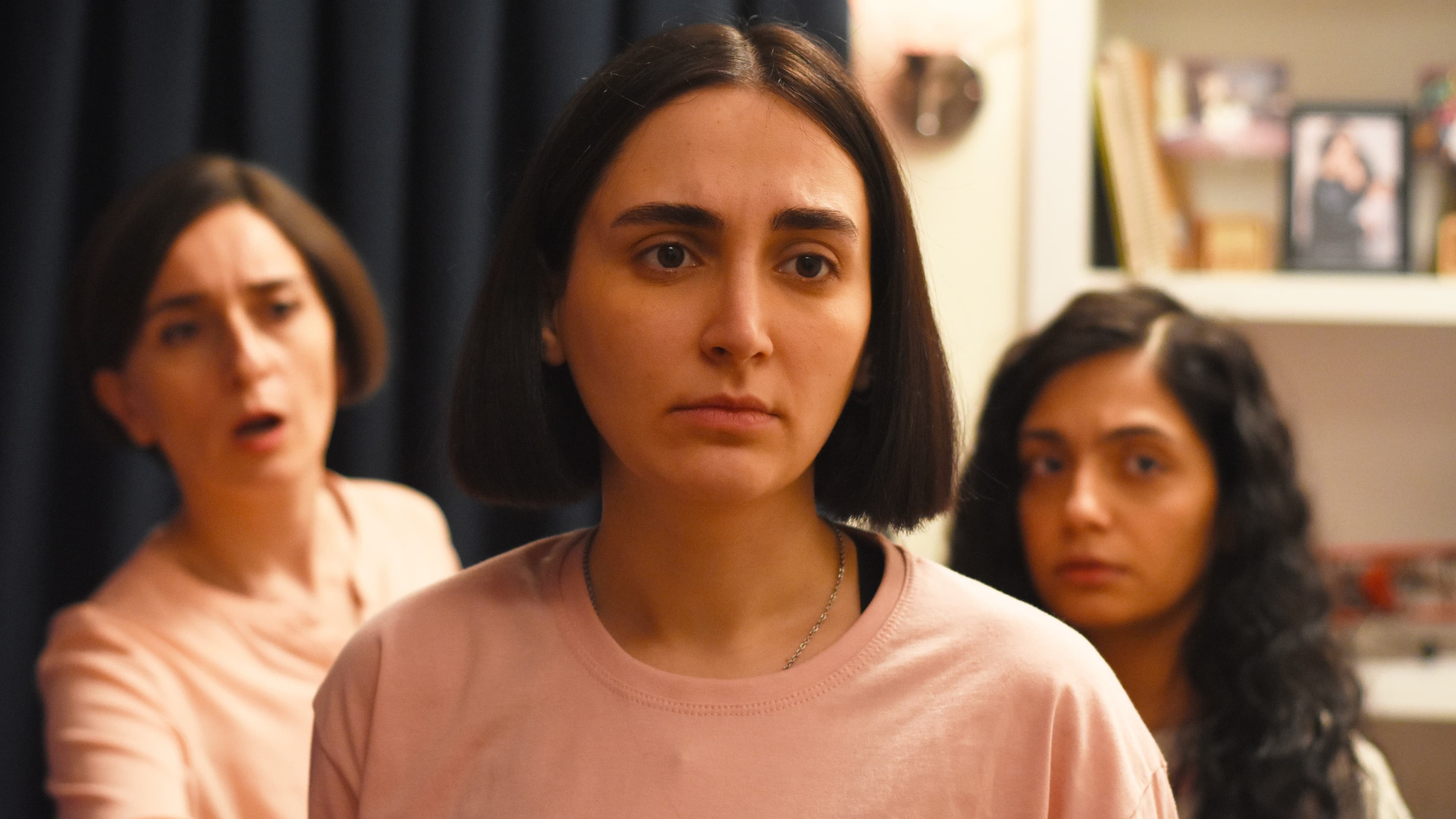
The Seed of the Sacred Fig
A hit at Cannes this year, one of Iran’s most daringly political dramas seizes on the waves of protests that followed killings by the country’s “morality police”. Real-life events, incorporated into this narrative feature via actual footage of protests, intrude upon an average family’s life in various ways here. Iman is an inspector of the Revolutionary Court who learns he’s expected to rubber-stamp the execution of protestors—with no consideration of evidence. Following the protests and violent state reprisals on social media, Iman’s daughters are horrified by events—the schisms within their family mirroring events outside, and carrying their own threat of harm.
Sleep
Korean thriller follows the pregnant Soo-jin (Jung Yu-mi), who starts the film with some low-level uneasiness about her husband’s sleep-talking habits—before this escalates into much more concerning behaviour. “Someone’s inside” declares a snoozing Hyeon-soo (late Parasite star Lee Sun-kyun) and as things get worse, professionals don’t look to offer much help. Looking nightmarish in every sense, you’d be ill-advised to doze off during this one—lest something unexpected come home with you from the cinema.
The Substance
Coralie Fargeat got our attention with Revenge, a 2017 take on I Spit On Your Grave. Her follow-up looks to channel the likes of Cronenberg and Carpenter, a satirical body horror that promises to be a grotesque closer to this year’s NZIFF. Demi Moore and Margaret Qualley star, in a story that sees a TV fitness instructor combat the impact of aging on her career by using “The Substance”—offering the best version of herself, but to unimagined consequences…
We Were Dangerous
This year’s opening night film selection, SXSW hit We Were Dangerous (winner of special Jury Award for Filmmaking in the Narrative Feature Competition) is directed by Josephine Stewart-Te Whiu, and stars Rima Te Wiata and a trio of young actors. They bring to life this 1950s-set drama about three girls sent to an isolated island, an institution for “delinquents”. There, the establishment hopes they can be reshaped into the obedient wives of the future—but what would you expect out of rebellious youngsters than the urge to escape? A solid way to kick off this year’s fest.



















